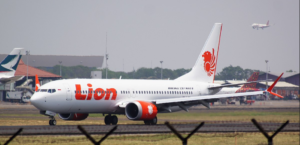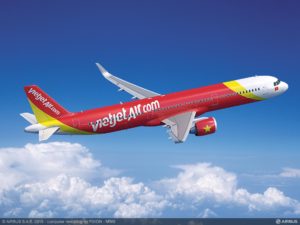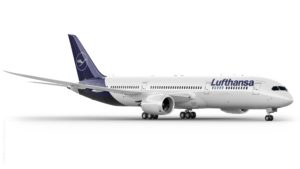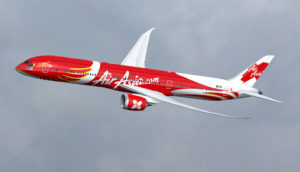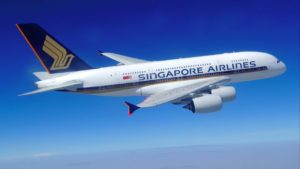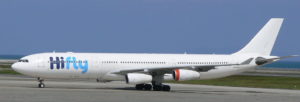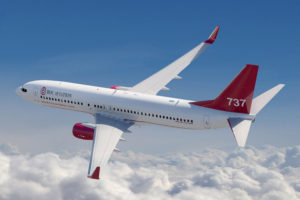SEATTLE, Nov. 29, 2018 /PRNewswire/ — Boeing [NYSE: BA] and Air Lease Corp. [NYSE: AL; “ALC”] today delivered the first 737 MAX 8 for Cayman Airways. The first 737 MAX to enter service in the Caribbean marks the beginning of the airline’s plans to modernize its fleet and expand its network.
“Cayman Airways is able to achieve the highest levels of efficiency with the 737 MAX 8, along with unparalleled levels of reliability and comfort,” said Cayman Airways President and CEO Fabian Whorms. “In addition, the MAX’s incredible range opens up the potential for several new markets within the Americas.”
Cayman Airways plans to take delivery of four MAX 8 airplanes to replace its fleet of 737 Classics.
Compared to the 737-300, the MAX 8 offers 30 percent greater seat capacity, and a more than 30 percent improvement in fuel efficiency per seat. The MAX achieves the higher levels of performance with the latest technology CFM International LEAP-1B engines, Advanced Technology winglets, and other airframe enhancements.
“ALC is pleased to announce this new Boeing 737 MAX 8 delivery with Cayman Airways today,” said Steven F. Udvar-Hἁzy, Executive Chairman of Air Lease Corporation. “With this new MAX 8 and the additional three aircraft set to deliver from ALC, Cayman Airways is successfully modernizing its fleet with the most technologically advanced, fuel-efficient aircraft to enhance the airline’s overall operations, maximize customer comfort and bring a new standard of excellence for travelers to and from the Cayman Islands.”
“We are delighted to open a new chapter in our partnership with Cayman Airways and ALC, and bring the 737 MAX to the Caribbean,” said Ihssane Mounir, senior vice president of Commercial Sales & Marketing for The Boeing Company. “The 737 MAX will help Cayman achieve significant improvement in performance and operating costs, while providing an even better flying experience for their passengers.”
To prepare for their new 737 MAX, Cayman Airways will train pilots at Boeing Global Services’ Miami training campus. Under this agreement, Cayman will use Boeing simulators for its entire 737 fleet including 737 Classics and Next-Generation 737s.
The 737 MAX family is the fastest-selling airplane in Boeing history, accumulating about 4,800 orders from more than 100 customers worldwide. Boeing has delivered more than 200 737 MAX airplanes since May 2017.
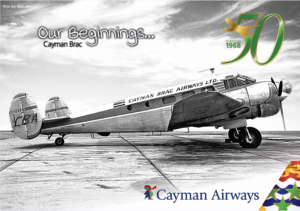
Story from www.boeing.com Image from www.caymanairways.com
SEATTLE, Nov. 30, 2018 /PRNewswire/ — Boeing [NYSE: BA] delivered the first 737 MAX for Fiji Airways, which plans to use the fuel-efficient, longer-range version of the popular 737 jet to expand and modernize its single-aisle fleet.
“We are thrilled to take delivery of our very first 737 MAX 8, named Island of Kadavu,” said Andre Viljoen, Managing Director and CEO of Fiji Airways. “The introduction of the 737 MAX is the beginning of a new chapter for Fiji Airways and we look forward to taking advantage of the airplane’s superior performance and economics. These new airplanes will enable us to offer a world-class customer experience through the new Boeing Sky Interior cabins with in-seat entertainment for all guests.”
Fiji Airways plans to take delivery of five MAX 8 airplanes, which will build on the success of its fleet of Next-Generations 737s. The MAX incorporates the latest technology CFM International LEAP-1B engines, Advanced Technology winglets, and other airframe enhancements to improve performance and reduce operating costs.
Compared to the previous 737 model, the MAX 8 can fly 600 nautical miles farther, while providing 14 percent better fuel efficiency. The MAX 8 can seat up to 178 passengers in a standard two-class configuration and fly 3,550 nautical miles (6,570 kilometers).
“We are delighted to welcome Fiji Airways to the MAX family of operators and we are thrilled they will be the first 737 MAX operator in the Pacific Islands,” said Ihssane Mounir, senior vice president of Commercial Sales & Marketing for The Boeing Company. “We are honored by their continued partnership and confidence in Boeing products. The market-leading efficiency of the MAX will pay immediate dividends for Fiji Airways and will help them improve their operation and route network.”
Based at Nadi International Airport, Fiji Airways serves 13 countries and 31 destinations/cities including Fiji, Australia, New Zealand, Samoa, Tonga, Tuvalu, Kiribati, Vanuatu and Solomon Islands (Oceania), the United States, Hong Kong, Japan and Singapore. It also has an extended network of 108 international destinations through its codeshare partners.
In addition to modernizing its fleet, Fiji Airways will use Boeing Global Services to enhance its operations. These services include Airplane Health Management, which generates real-time, predictive service alerts, and Software Distribution Tools, which empowers airlines to securely manage digital ground-based data and efficiently manage software parts.
The 737 MAX family is the fastest-selling airplane in Boeing history, accumulating about 4,800 orders from more than 100 customers worldwide. Boeing has delivered more than 200 737 MAX airplanes since May 2017. For more information and feature content, visit www.boeing.com/commercial/737max.
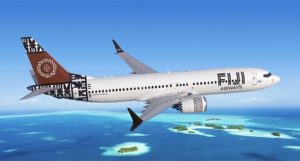
Story from www.boeing.com Image from www.fijisun.com.fj
